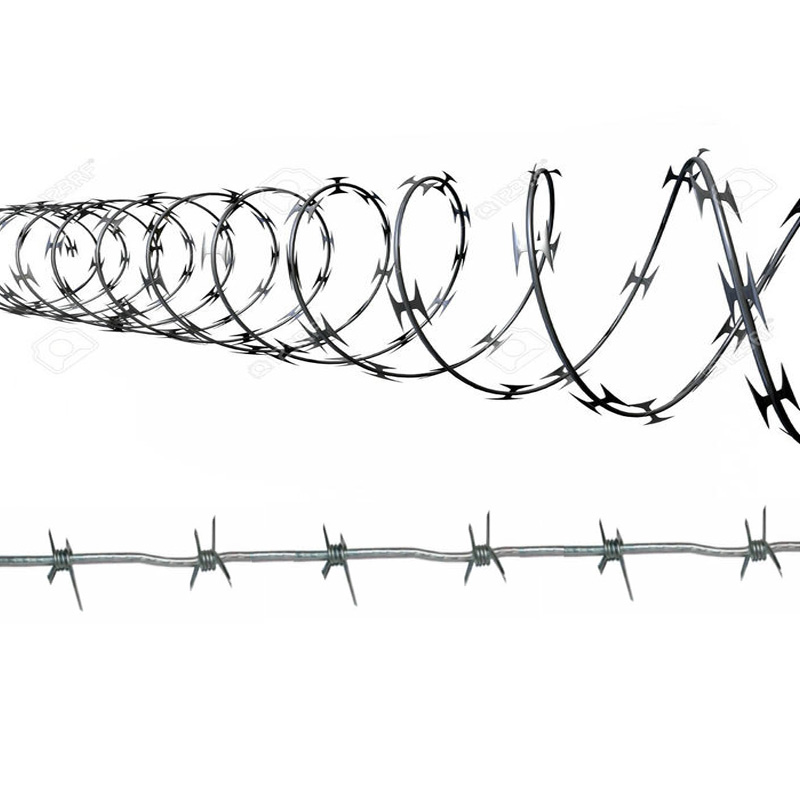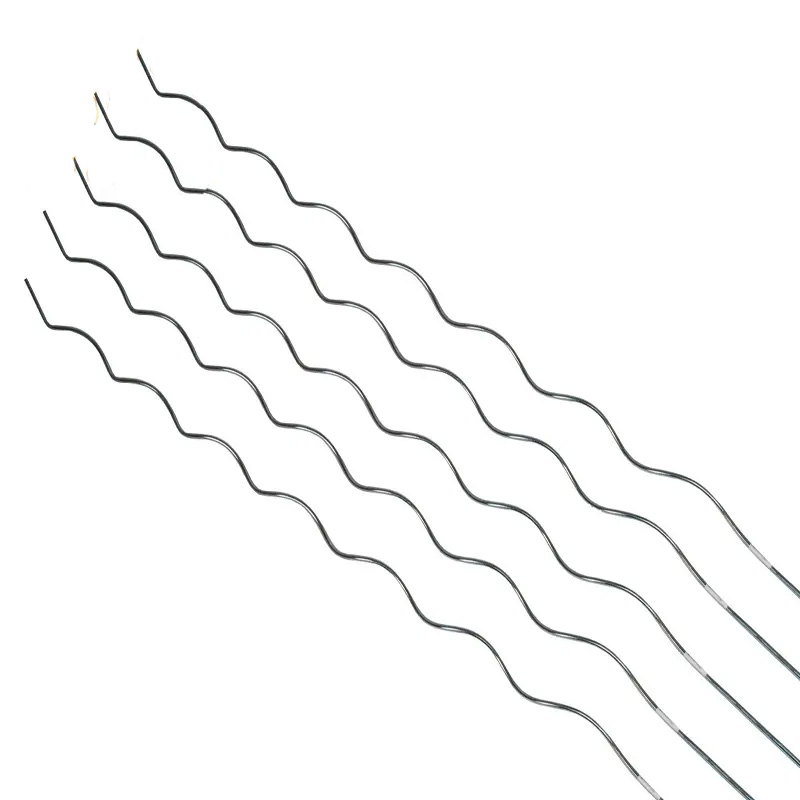-
+86 15030157877
-
sales@galvanizedmetalmesh.com
When it comes to reliable fencing and security solutions, HEBEI WEICHUN WIRE MESH TRADE CO., LTD. stands as your trusted manufacturer of high-quality wire and barbed wire products. With decades of expertise in wire mesh production, we offer robust solutions designed to meet the toughest security and agricultural challenges. Whether you need to secure a perimeter, protect livestock, or reinforce boundaries, our products deliver unmatched strength, longevity, and performance.
For agricultural and fencing applications, our Spiral Stake Wire provides exceptional flexibility and durability. Its unique spiral design ensures easy installation while maintaining superior tension, making it ideal for vineyard trellising, orchard support, and temporary fencing. The galvanized or PVC-coated options enhance corrosion resistance, ensuring long-term use even in harsh weather conditions. Farmers and landowners appreciate its versatility and cost-effectiveness in creating stable, long-lasting enclosures.
When security is a top priority, our Barbed Wire and Razor Barbed Wire offer the ultimate deterrent against intruders. Traditional barbed wire features sharp, evenly spaced barbs that create an effective barrier for livestock containment and perimeter protection. For high-security needs, our Razor Barbed Wire takes protection to the next level with its razor-sharp edges, making it virtually impossible to breach. Widely used in military installations, prisons, and industrial sites, this heavy-duty solution provides maximum security with minimal maintenance.
Razor Wire Fence Used for Prison and Key Project Protection
Razor wire fencing is one of the most formidable perimeter security solutions, widely deployed in prisons, military installations, government facilities, and high-risk infrastructure projects. Unlike traditional barbed wire, razor wire features sharp, blade-like edges designed to inflict significant deterrent damage to anyone attempting to breach it, making it nearly impossible to climb or cut through without specialized tools.
In correctional facilities, razor wire fences are a critical component of layered security systems. They are often installed in multiple coils or concertina configurations atop walls to prevent escapes. The psychological impact alone—seeing the gleaming blades—acts as a powerful deterrent. For military bases and border security, razor wire is used to create impenetrable barriers against unauthorized entry, often combined with surveillance systems and patrols.
Critical infrastructure projects, such as power plants, airports, and data centers, also rely on razor wire fencing to protect against sabotage, terrorism, or theft. The material’s durability ensures long-term resistance to tampering, weathering, and corrosion, especially when made from galvanized or stainless steel.
Installation methods vary based on security needs:
Concertina coils (stacked or expanded) create a 3D barrier that is difficult to compress.
Flat-wrap razor wire is used for walls and fences where a low-profile yet lethal deterrent is needed.
Welded razor mesh panels provide rigid, unyielding protection for ultra-high-security zones.
While razor wire is exceptionally effective, its use is typically restricted to authorized high-security sites due to its extreme hazard. Civilian applications are rare and heavily regulated, but for prisons and sensitive installations, it remains an indispensable security measure.
Can I Put Barbed Wire on My Fence to Stop Intruders?
The use of barbed wire as a security measure is a common consideration for property owners looking to enhance perimeter protection. While barbed wire can be an effective deterrent against intruders, its installation is subject to legal regulations, safety considerations, and practical effectiveness.
From a security standpoint, barbed wire creates a physical and psychological barrier that discourages unauthorized access. The sharp barbs make climbing or crossing painful and difficult, which can be particularly useful for securing rural properties, industrial sites, or storage facilities. However, its effectiveness depends on proper installation—typically mounted at the top of a fence at an outward angle to prevent intruders from gaining leverage.
Legal restrictions vary significantly by location. Many urban and suburban areas prohibit or heavily regulate barbed wire due to safety concerns for pedestrians, children, and animals. Some jurisdictions require permits, limit installation height, or mandate warning signs if barbed wire is used. In residential areas, homeowners' associations (HOAs) may have additional rules against its use for aesthetic reasons. Before installation, it’s crucial to check local ordinances and consult with authorities to avoid fines or forced removal.
Safety and liability are also important factors. While barbed wire deters intruders, it can cause injuries, leading to potential legal claims if someone is harmed—even trespassers in some cases. Property owners must weigh the security benefits against the risk of accidents or lawsuits. Alternatives like prickly hedges, anti-climb spikes, or motion-activated lighting may provide security without the legal complications.
For high-security needs, razor wire or welded mesh with barbed strands offers superior protection but is often restricted to commercial or industrial use. If barbed wire is permitted and appropriately installed, it can be a cost-effective way to enhance security—but it should be part of a broader security strategy including cameras, alarms, and proper lighting.
The Benefits of Welded Razor Wire Mesh
Welded razor wire mesh represents the pinnacle of perimeter security, combining the strength of rigid fencing with the extreme deterrent effect of razor-sharp blades. This hybrid system is increasingly favored for maximum-security prisons, military compounds, and critical infrastructure protection due to its unmatched durability and resistance to breaching.
One of the primary advantages is its structural rigidity. Unlike loose coils of razor wire, welded mesh panels are factory-assembled into unyielding barriers that cannot be easily bent or pried apart. The welded intersections prevent intruders from creating gaps, while the integrated razor tape ensures severe injury to anyone attempting to climb or cut through.
Anti-scaling properties make it particularly effective. The combination of vertical and horizontal razor strands eliminates handholds, defeating even the most determined climbers. When installed as a standalone fence or as a topping for walls, it provides 360-degree protection without the sagging or loosening issues associated with traditional barbed wire.
Durability is another key benefit. Made from high-tensile steel with galvanized or PVC coatings, welded razor mesh withstands extreme weather, corrosion, and attempted tampering. Unlike chain-link fences that can be cut with bolt cutters, the welded construction requires power tools to breach—significantly delaying intruders.
For facilities requiring perimeter detection integration, welded razor mesh works seamlessly with motion sensors, electric fencing, and surveillance cameras. Its intimidating appearance alone often deters potential threats, reducing the likelihood of attempted breaches.
While primarily used in government and high-security sectors, some industrial sites and private estates with extreme security needs also deploy welded razor mesh. Its unparalleled strength and deterrence make it the ultimate choice when absolute perimeter protection is non-negotiable.





